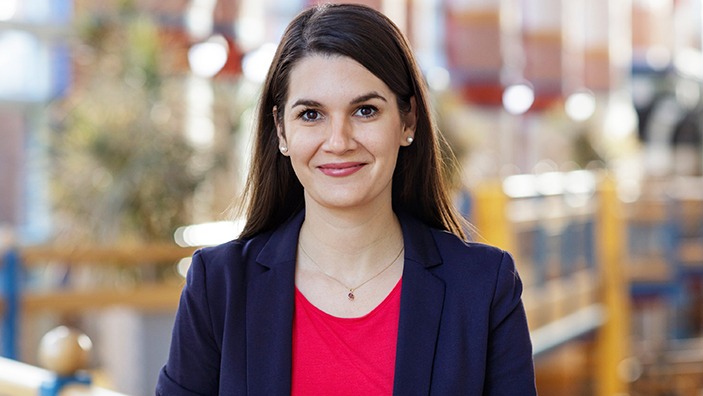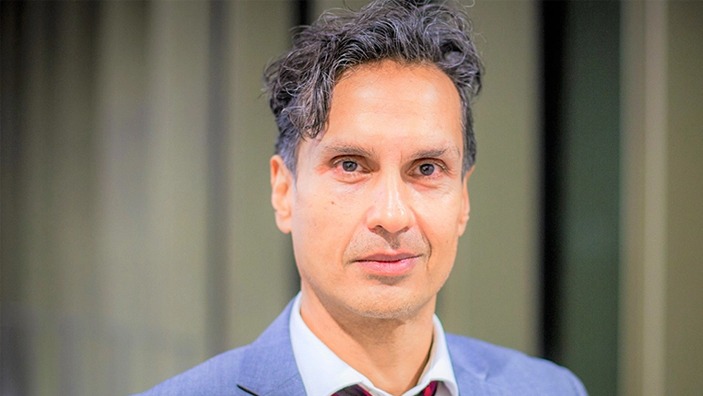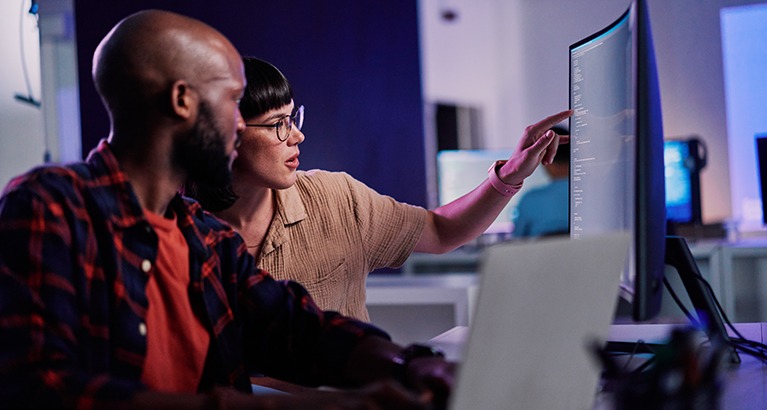Doctors and others working in war zones and other extreme environments usually mask their emotions, including through silence. Conventional wisdom assumes that this silence is dictated by peer pressure and other outside forces.
Research at Cambridge Judge Business School finds, however, that such silence may instead be a deliberate individual decision that allows people to maintain focus to perform difficult and often life-saving work, and as protection against emotional breakdown from exposure to brutality in conflict zones. The research focused on people working for non-governmental organisation Médecins Sans Frontières.
Silence as a way of communication and a coping mechanism
“Our study shows that silence may be golden when it comes to maintaining the composure that is required for carrying out work in extreme contexts. Silence serves as a collective pact that communicates without expressing or articulating how one feels about a brutal situation,” says the research by Madeleine Rauch, Associate Professor in Strategy & International Business, and Shahzad (Shaz) Ansari, Professor of Strategy & Innovation.
“We reframe the role of silence, not as a result of imposed censorship or emotional numbness, but as a voluntary emotional defence mechanism,” says the research published in the Journal of Management Studies.
Says Madeleine: “Our research challenges the negative connotations that people usually associate with silence, and instead offers a more nuanced understanding to how people manage emotions in difficult contexts. While silence has often been viewed as a form of self-censorship out of fear of peer retribution, we instead find that silence is often a conscious decision taken by individuals for other understandable reasons.”
Adds Shaz: “The findings have practical implications for organisations operating in extreme contexts. Traditional training may focus on emotional detachment, but we find that a broader and more textured approach of emotional coping strategies is required – particularly because these settings often involve volunteers from different backgrounds.”


Observing medics: diaries, interviews and conflict zones
The study, “Reframing silence as purposeful: emotions in extreme contexts”, is based on studying doctors, nurses and other medical professionals working for Médecins Sans Frontières (MSF). It is based on analysis of 53 unsolicited personal diaries, interviews with MSF personnel, and observation in conflict zones in Yemen, Afghanistan and Iraq.
While there has been much interest in how medical and military professions manage emotions under pressure amidst rising mental health issues and suicide rates among returning soldiers, there has been little prior research into the strategies used by individuals to handle emotional distress in extreme environments.
Previous studies have often focused on suppression of negative emotions in such settings – with individuals told to “smile like you really mean it” in order to “maintain face” and “keep up appearances”, says the research by Madeleine and Shaz. Their study, in contrast, examines how silence and the recording of emotions in diaries helps individuals to actively deal with these emotions.
Research for the paper included access for Madeleine on MSF field trips to clinics for women and girls in Afghanistan, makeshift tent cities in Iraq, and MSF-run hospitals in Yemen, including one assignment that also included representatives of the United Nations and other NGOs. She also attended several training sessions and other preparatory meetings in order to more fully understand the people involved in these missions and their approaches.
How do on-duty, off-duty and personal sanctuary interactions differ?
The research draws on prior research on the distinction between ‘frontstage’ and ‘backstage’ interactions – with frontstage referring to a person’s regular outward-facing duties and backstage connoting an off-duty side to one’s demeanour in which the person can relax, act more naturally, and discard their work disguise. The study then adds an additional third element by also examining a private, safe space – such as a diary – “a personal sanctuary created by individuals to vent their emotions in solitude.”
This personal sanctuary included the use of an ‘internal interlocutor’ in writing diary entries. This entailed starting such entries with “Hi, Diary” or “Hi, there. It’s me again”, writing to fictional friends such as “Travis from Memphis”, and viewing journal entries as a conversation with God – “God, I know you are watching me, but you don’t see how cold the [touch] of a scalpel is here”.
The research identifies 2 interrelated contributions:
1
Workers conceal emotions in private, although open up more with patients
While prior research has highlighted the taboo surrounding emotions in organisations like the military, the study extends this to show that emotional concealment occurs not only in public but also backstage in private interactions among colleagues.
“We recognised differences in how workers behaved in front of their patients and with their colleagues. We identified various patterns in how they expressed or suppressed demonstrations of emotion despite frequent interactions with their peers and colleagues. For example, individuals stated, ‘This is no place for talking about feelings’ and ‘Feelings are not welcome to be shown’ among peers. However, they engaged more openly with their patients despite their professional defence mechanisms.”
2
Diaries create private sanctuaries
The study uncovers a distinct approach to emotional management, namely the creation through diaries of “private sanctuaries for emotional expression, shielded from social judgment.”
Heartbreaking stories and how war surgeons deal with them
Some of the interviews or diary entries are heartbreaking, with MSF personnel in Yemen describing a lack of resources to treat open fractures from explosives and gunshots, and a “malnutritioned baby in your hands [who] is lighter than your sons’ PlayStation”.
“No possible training could prepare you for the severity” of the situation, said one interviewee.
So while one surgeon summed up the stiff-upper-lip expectations by saying, “It’s all about pretending to be super chill and super cool. Nothing can touch you”, the MSF professionals privately shared a different approach, with one diary excerpt saying: “I had to swallow […] my emotions. It was hard. It was the sixth death of the day. Inside, I was just empty, but I just couldn’t show others.”
Other tactics for dealing with emotions included dark humour and sarcasm in talks with colleagues, and a doctor who was also a classical singer who would hum in D Minor, a key “regarded as the saddest, darkest, and most melancholic key known in music.”
Academic’s prior research focus: technology and meaning of work
The research on silence in extreme contexts is one of several papers that Madeleine and Shaz have teamed up on in recent years.
A 2021 study published in the Journal of Management Studies looked at how an academic publishing project reframed its core purpose from conducting research on user innovation to providing global access to such innovations and provide societal impact. A study published in the journal Organization Science in 2022 examined how technology disrupts the meaning and morality of work, specifically how military drone operators (based in Nevada and remotely guiding drones in Afghanistan) deal with the fact that they are targeting people thousands of miles away through technology.
Featured faculty
Shahzad (Shaz) Ansari
Professor of Strategy and Innovation
Madeleine Rauch
Associate Professor in Strategy and International Business
Featured research
Rauch, M. and Ansari, S. (2024) “Reframing silence as purposeful: emotions in extreme contexts.” Journal of Management Studies





